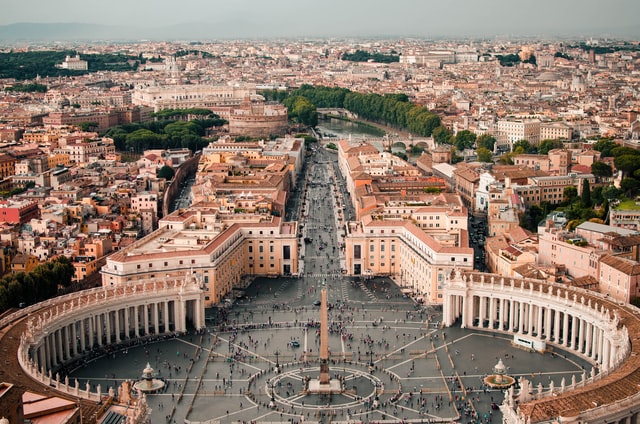Friday news roundup August 7, 2020

Pope Francis appointed six women to senior positions at the Vatican. Of the seven new laypeople the Pope appointed to the Vatican’s Council for the Economy this week, in what’s been called a “historic first,” six are women. The council is made up of eight cardinals and seven experts with financial expertise. The overall percentage of women working within the Holy See and Vatican City remains low but has increased over the last ten years, from 17% in 2010, to 22% in 2019. “Pope Francis ... has affirmed that the Catholic Church needs more women in leadership positions. In the Vatican and the Roman Curia, he is gradually preparing the ground,” said Vatican News in 2019.
People smugglers are using increasingly brutal methods to transport refugees across the Channel. Calm seas, the Covid-19 pandemic, and an absence of safe and legal routes for people to reach the UK to claim asylum have created a boom in the trade of people, according to experts. More than 2,000 people are said to have entered the UK by sea from France in June—more than four times the known total of 500 for the whole of 2018. Having identified a business opportunity, campaigners say that criminal gangs have moved in to transport greater numbers of refugees on small boats. The Refugee Council has called on the UK’s home secretary, Priti Patel, to create safer routes for asylum seekers: “Tightening border security is not the solution and only serves to push people seeking asylum to take higher risks. Creating safe and regular routes to the UK—through an expanded resettlement programme, humanitarian visas, and reforming the restrictive family reunion rules—is the way to effectively address this issue.”
Scotland’s education secretary says deprived pupils were not penalized unfairly by the country’s exam system. Like many other countries, Scotland’s end-of-year exams were cancelled this year as a result of the coronavirus pandemic. Results, released on Tuesday, were instead based on teachers’ estimates of their pupils’ work over the school year. Scotland’s exam body then “checked and validated” the estimates and moderated them to “ensure consistency across schools and colleges, and with results from previous years.” However, thousands of pupils received worse results than they were expecting when about 125,000 estimated grades were lowered. Some pupils believe they were penalized because their schools have historically not performed so well. John Swinney says that the data “does not bear this out,” as students from the most-deprived areas did better than last year and the four-year average. However, figures also show that the pass rate for pupils from the most deprived backgrounds was reduced by 15.2 percentage points, compared with only 6.9 percentage points for the wealthiest pupils. Pupils who believe they have been unfairly penalized can access a free appeals process.
A new report says Covid-19 has led to a “brutal crackdown” on garment workers’ rights in Asia. Millions of garment workers in some of the poorest parts of Asia have lost their jobs since coronavirus lockdowns hit the global retail industry. Workers say they have been disproportionately targeted due to union membership and organizing. The Business and Human Rights Resource Centre (BHRCC) report links nearly 5,000 job losses to union membership at nine factories in Myanmar, Cambodia, Bangladesh, and India. As plummeting sales caused production to slow, factories began to make thousands of workers redundant across the region. The report alleges that the big name brands who rely on the garment workers for their stock should have been more active in ensuring workers were not punished or targeted for belonging to unions. Several of the companies named in the report have stressed that they are committed to protecting workers’ rights to join and form unions and bargain collectively.